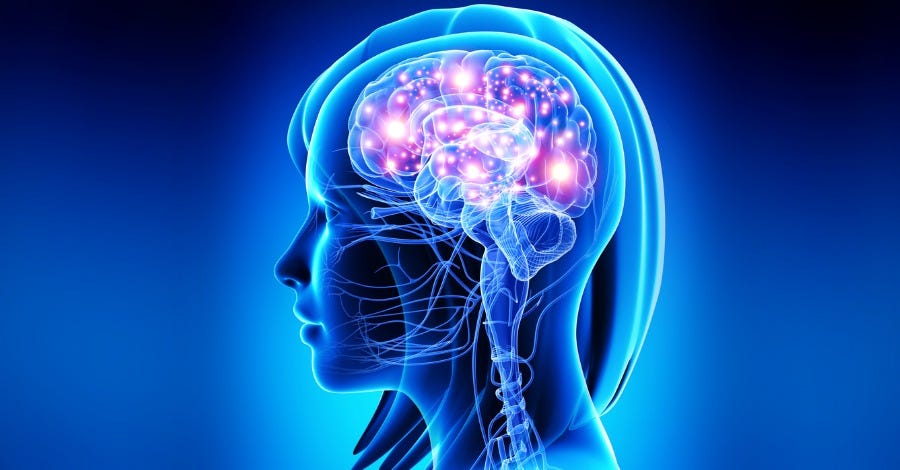Last week, inside our TruNeura Mastermind, Dr. Kristine Burke delivered what can only be described as a tour de force—a deep, clinically grounded exploration into the role of hormonal health in cognitive decline. From estrogen’s effect on the hippocampus to the growing evidence supporting hormone replacement therapy (HRT) for Alzheimer’s prevention, this topic is hot, timely, and clinically urgent.
Hormonal health—particularly in the context of perimenopause and menopause—has become a lightning rod in both mainstream media and clinical practice. With millions of women entering midlife every year, and a corresponding rise in concerns about brain fog, memory lapses, and mood changes, the idea of the “perimenopause brain” is gaining traction. And it’s not just anecdotal. It’s biological.
Hormones and the Brain: What the Research Says
The science connecting hormonal health and brain function is rapidly evolving. A few highlights that set the stage:
1. The Cache County Study
One of the most referenced population studies in cognitive health, the Cache County Study showed that women who used hormone replacement therapy (HRT) during perimenopause experienced a 30% to 50% reduction in Alzheimer's risk later in life. Timing, it turns out, is everything.
2. Estrogen’s Role in Neuroprotection
Multiple studies have shown that estradiol supports synaptic health, increases cerebral blood flow, and helps regulate key neurotransmitters like acetylcholine—critical for memory and learning.
3. Testosterone and Executive Function
In both men and women, low testosterone levels have been associated with executive dysfunction, mood disorders, and even accelerated white matter loss. Optimal hormone balance isn't just about libido—it's about neuroprotection.
Hormone and Trophic Factors: A Core Root Cause Category
At TruNeura, we don’t treat hormones as a sidebar—we treat them as one of the six key subsets of root cause in our brain health framework. Inside the TruNeura software, Hormone and Trophic Factors are tracked, scored, and presented with the same weight and clarity as metabolic inflammation, vascular health, biotoxins, nutrients, and chemical toxins.
During her Mastermind session, Dr. Burke walked us through how hormone labs are scored and organized inside the platform. This consistent layout allows for pattern recognition—something that’s nearly impossible when you’re juggling 10–20 PDFs in a traditional EHR or lab viewer.
Estradiol, progesterone, testosterone, DHEA, pregnenolone, thyroid markers, and cortisol are all auto-scored.
The software lays these values out in a unified visual, showing the patient’s position across optimal, suboptimal, and dangerous ranges.
This makes it easy to correlate hormonal patterns with cognitive symptoms, enabling more confident clinical decision-making.
It’s not just about having the data—it’s about putting it in the right order, every time.
Perimenopause Brain: A Real Phenomenon
One of the most impactful parts of Dr. Burke’s session focused on the perimenopausal transition—a time of profound hormonal fluctuation that often gets dismissed as “just part of aging.” In reality, many women in their 40s and 50s report symptoms like:
Brain fog
Word retrieval issues
Mood swings
Memory lapses
Fatigue and sleep disruption
These aren’t just lifestyle issues. They are early neurological signs of hormonal instability, and they deserve serious clinical attention.
With interest in HRT growing exponentially, and more women seeking personalized, data-driven solutions, now is the time for practitioners to understand how hormone optimization fits into cognitive health protocols.
Inside TruNeura, we help you answer questions like:
What’s the optimal dosing strategy for estradiol, progesterone, or DHEA in a cognitive decline patient?
How do we time interventions to match the patient’s phase of life or cognitive trajectory?
How do hormonal patterns interact with metabolic, vascular, or toxin-driven pathologies?
And most importantly: how do we track whether it's working?
Hormones as a Key Leverage Point in Brain Health
Cognitive decline isn’t caused by one thing—it’s multifactorial. But hormonal dysfunction is one of the most overlooked, under-discussed, and undertreated contributors to early cognitive symptoms.
Whether you’re treating patients with subjective memory complaints or those on formal dementia protocols, hormone evaluation should be a core part of your assessment.
TruNeura helps you go beyond theory and integrate hormones into your clinical process with:
Lab scoring & pattern recognition
Wearable integration to track symptoms and sleep changes
Patient adherence tracking across hormonal protocols
Dynamic dashboards that help clinicians make decisions in real time
Closing the Loop on Hormone Therapy in Cognitive Decline
The world is changing. Your patients are reading about hormone therapy in every women’s health magazine and wellness podcast. They want to know:
Should I be on HRT?
Will it help my brain?
What are the risks—and what are the alternatives?
With TruNeura, you’re equipped to answer those questions with data, structure, and confidence.
Dr. Burke’s insights are just the beginning. Inside the Mastermind, we’re giving practitioners the clinical mentorship and software support to make hormone-driven protocols a core part of their brain health programs.
What’s Next?
If you're a clinician looking to elevate your brain health protocols and deliver precision-based hormone optimization, TruNeura is your platform.
See how hormone and trophic factors fit into the full root-cause map
Learn from Dr. Kristine Burke—one of the top dementia reversal physicians in the country
Use our software to streamline case review, identify patterns, and deliver better outcomes
Because when you understand hormones and can organize the data to act on them, you change lives.
Want to learn more? Book a demo and see how TruNeura helps you make hormone protocols clinically actionable.
Let’s build the future of brain health—together.





